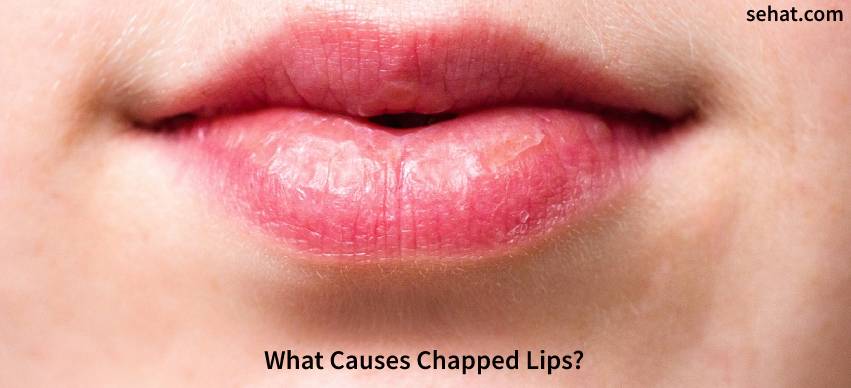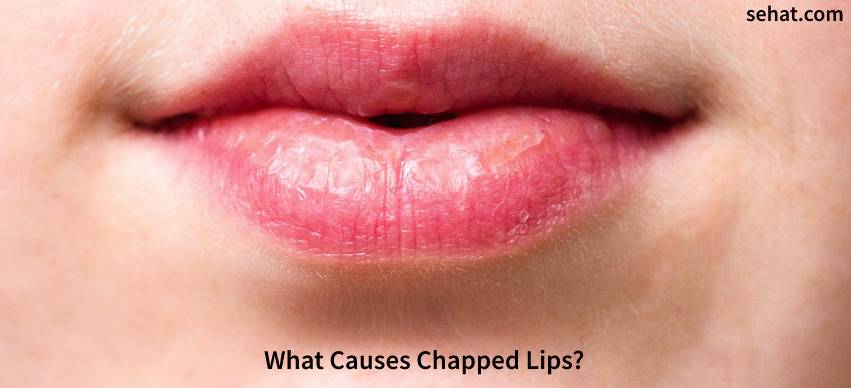How Communities Are Changing the Way We Think About Aging in..
8 Min Read


There are two types of people in this world: The ones that always have lip balm on hand and those that have to hunt it down every once in a while because they keep losing it. Regardless, we can all agree to the fact that chapped lips are annoying, and as we're headed into the colder weather, many of us might be troubled by the worst chapped lips.
Chapped lips are very common in a lot of people. Chapped lips or Cheilitis is a term used to describe dry, irritated, flaky, and even bloody lips. Cheilitis can be mild and easily treated, or it can be extreme and cause the worst kind of chapped lips, which may require a visit to the dermatologist(1, 4).
The layer of skin on our lips is very thin, and there are no oil glands on them which can cause them to be very sensitive and prone to dryness. They are also packed with various nerve endings to help us sense temperature, taste, etc. If your lips are chapped, it means they have lost moisture and gotten dry and irritated due to one reason or another(2).
The following symptoms may be experienced on or around the lips:
The feeling of dry, rough, sore lips is unpleasant, but understanding the underlying cause can help in finding a solution. Chapped lips can occur naturally or be brought on by various other factors.
Weather Conditions: In the winter season, the air is colder. Cold air is not able to hold moisture as well as hot air, which causes lips to dry out. Dry air can suck the moisture off of your lips and leave you with dry and eventually chapped lips (3).
Persistent Licking: Lips have the unfortunate feature of being near the tongue. Constantly licking your lips creates a wet-dry cycle that can excessively dry them out. Especially during colder weather, when you lick your lips, the dry air evaporates the saliva, which makes them drier than they were, to begin with(3).
Allergies: Allergies like sinus infections that make it difficult to breathe through the nose may cause chapped lips, as mouth breathing leads to dryness and chapping. Direct allergies from the chemicals in products like toothpaste, sunscreen, or certain lip products may also cause damage to the delicate lip skin (3).
Medications: Certain medications and supplements that affect the salivary glands, the mouth's surrounding muscles, or the lip area can lead to dry mouth, which eventually leads to chapped, dry lips. These medications include vitamin A, antidepressants, retinoids, and chemotherapy drugs (3).
Dehydration: Dehydration is a common issue when one is sick with a nasty cold, and the lack of fluids may lead to cracked, bleeding lips (3).
Mouth infections: Infections like herpes or cold sores can cause dry, chapped lips (3).
Sunburn: Like your skin, lips need protection from the sun, or else they may get dried out and flaky from staying out in the sun too long. Burns can result in swelling, scarring, and even blistering, and it may take a while to find relief (3).
Poor oral hygiene: Bad oral hygiene habits and neglecting oral health can eventually cause the worst chapped lips, and they become dry, cracked, and prone to sores (3).
Eating disorders: Eating spicy food may lead to burns, and not getting enough nutrients can be linked to deficiencies like anemia which can cause dry, irritated lips and the corners of the mouth to crack (3).
It is necessary to identify what is causing your lips to dry out, as different problems require different solutions. Once you have figured that out, it is easier to start working on the treatment. Generally, it is important to keep a good oral hygiene routine and visit the dentist at least once every six months. Pay mind to the ingredients in the lip and mouth care products that are used and try to opt for non-irritating products. Ingredients like castor oil, ceramides, petrolatum, and shea butter are extremely beneficial for the lips, while flavored and perfumed products should be avoided. Using sun protection on your lips is essential. Try to always keep a hydrating lip balm close to you, especially during the colder weather. Drink plenty of water and try not to lick your lips even if you naturally feel the need to. Try to follow a healthy diet and use a humidifier at home if needed to make up for the dehydration in the air (5).
Most of the time, the above self-care will help treat chapped, dry lips in a period of 2 to 3 weeks, but if that doesn't seem to work, a board-certified dermatologist might be able to diagnose the cause and provide a suitable treatment.
References:
1. Moore, K. (2019, March 27). What causes chapped lips? Healthline. Retrieved November 4, 2022, from https://www.healthline.com/health/chapped-lips
2. NHS. (n.d.). NHS choices. Retrieved November 4, 2022, from https://www.nhs.uk/conditions/sore-or-dry-lips/
3. NCBI Bookshelf. (n.d.). Retrieved November 4, 2022, from https://www.ncbi.nlm.nih.gov/books/NBK470592/
4. Lugovi?-Mihi?, L., Pilipovi?, K., Crnari?, I., Šitum, M., & Duvan?i?, T. (2018, June). Differential diagnosis of Cheilitis - how to classify Cheilitis? Acta clinica Croatica. Retrieved November 4, 2022, from https://www.ncbi.nlm.nih.gov/pmc/articles/PMC6531998/
5. WebMD. (n.d.). Chapped lips remedies: Lip Balm tips for severely dry lips. WebMD. Retrieved November 4, 2022, from https://www.webmd.com/beauty/why-your-lips-are-chapped